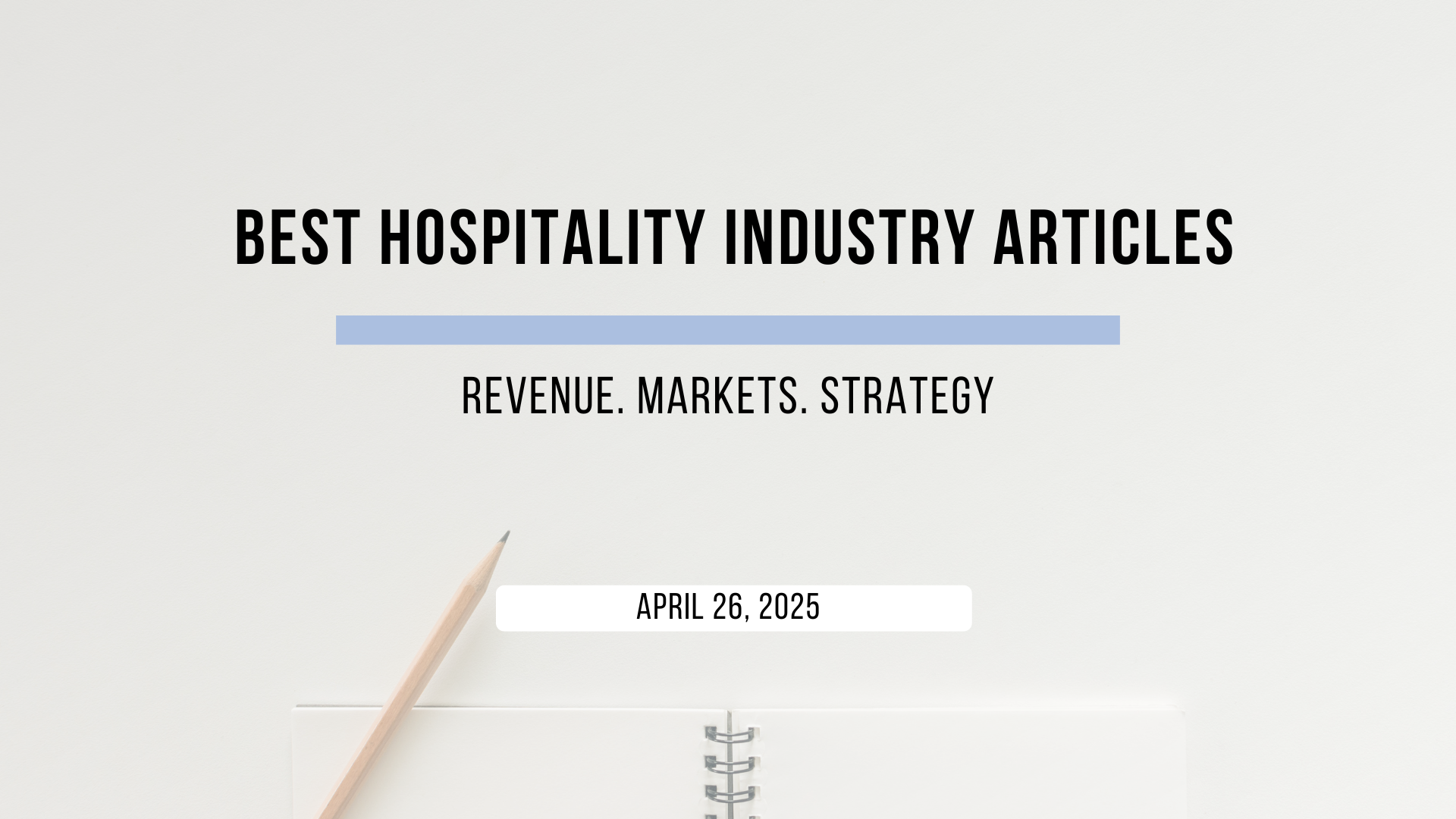
Weekly Insights. April 26, 2025
Best hospitality industry articles focused on 💵revenue, 📊markets, and 🎯strategy (Apr 20 - Apr 26, 2025).
What percentage of human employees in hospitality will be replaced by technology by 2030?
Last year, labor costs consumed a third of hotel revenue and technology - AI, robotization and automation - are becoming increasingly appealing to hotel owners and operators.
I believe at this time there are three main impediments to fast adoption of AI, robotization and automation in our industry:
a). reluctance to invest in new technologies by real-estate minded owners and operators,
b). lack of understanding and fear of new technology: "Who will deal with it? I don't have trained staff to deal with it. It makes operations very complex", etc., and
c). the labor unions in major metropolitan areas with highly-unionized hospitality labor force are dead set against any AI, robotization and automation or any technology advancement that can reduce the number of paying members.
In my view, none of the above can stop the rapid advancements in the adoption of AI, robotics and automation in our industry, in the same manner as the Luddite movement in early 19th century England could not stop the First Industrial Revolution.
Now, the question is: What percentage of human employees in hospitality will be replaced by technology (AI, robotization and automation) by 2030?

How to reduce food waste in restaurants
The article emphasizes the significant challenge of food waste in the restaurant industry, highlighting its impact on profitability, sustainability, and the environment. It identifies key contributors to food waste, including overproduction, large portion sizes, and inefficient inventory management. To address these issues, the article advocates for adopting circular economy principles, such as optimizing inventory through digital tracking, adjusting portion sizes, training staff on waste reduction, implementing food donation programs, and partnering with sustainable suppliers. While acknowledging the challenges in implementing these strategies, the article underscores the importance of proactive measures to reduce food waste and promote sustainability in the hospitality sector.
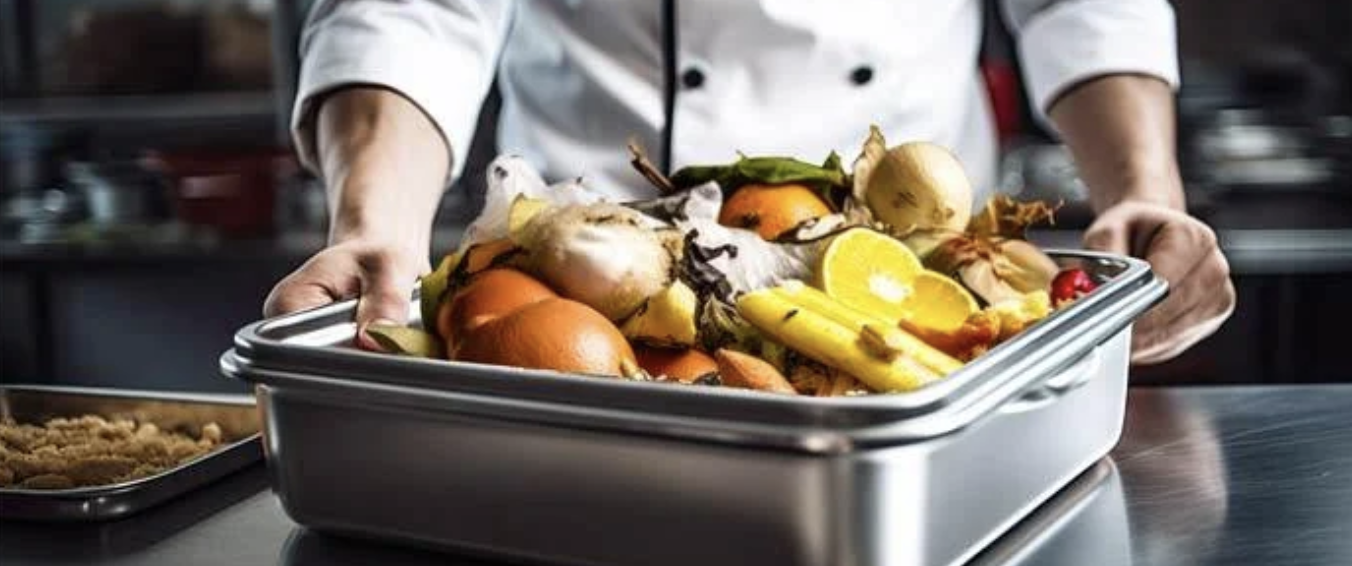
How does ChatGPT’s AI Agent, Operator, feel about your booking engine?
AI agents like ChatGPT's AI Operator have the potential to disrupt the world of travel. But are they there yet? See how Operator fared on different hotel booking engines (and with different search types).
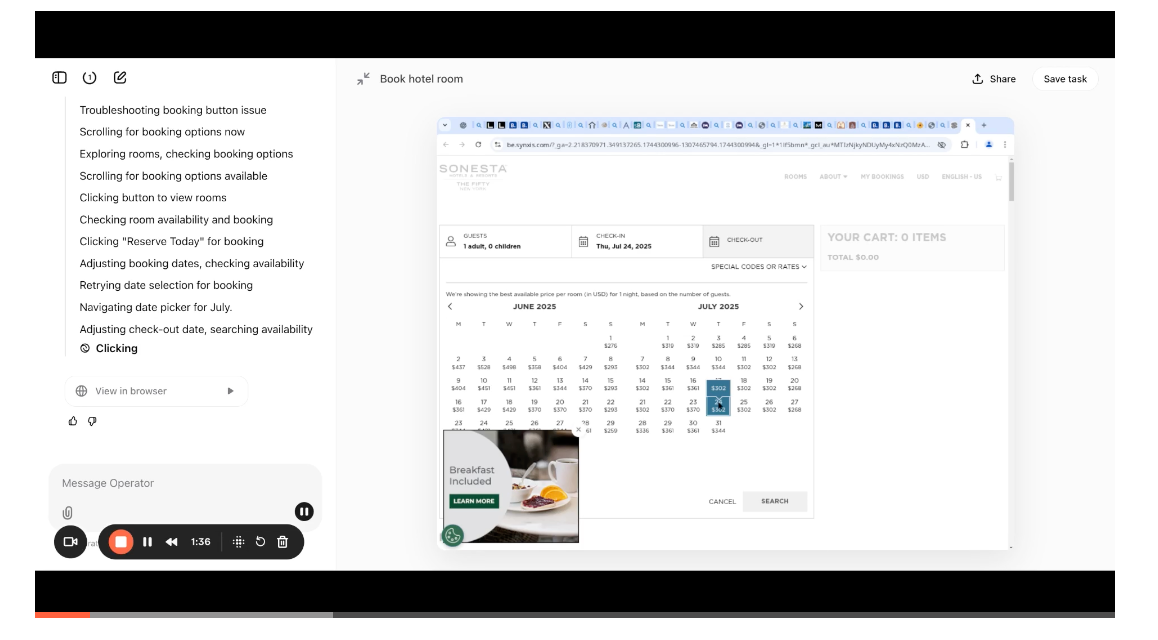
From tariffs to tactics: How hotels can adapt to shifting market sentiment
The article discusses how hotels can adapt to shifting market conditions influenced by tariffs and geopolitical tensions. It notes that recent tariff announcements have led to declining hotel rates in major U.S. cities, such as Washington D.C., Los Angeles, and San Francisco, due to reduced international travel interest, particularly from Canada. To navigate these challenges, the article recommends strategies like adding value instead of cutting rates, targeting existing demand segments, optimizing OTA strategies, maintaining focused marketing efforts, and leveraging real-time data tools to respond swiftly to market changes. By implementing these tactics, hotels can better manage pricing pressures and sustain revenue during periods of uncertainty.

How to sell hotel rooms: 13 ways to increase revenue
The article outlines 13 strategies for increasing hotel room sales and revenue, emphasizing the importance of maximizing premium room bookings through upselling software, minimizing overbookings, and promoting rooms across multiple channels. It also highlights the benefits of enhancing direct booking channels, focusing on room benefits rather than just features, and offering special deals and promotions to attract guests. By implementing these techniques, hotels can improve occupancy rates, boost revenue, and enhance the overall guest experience.
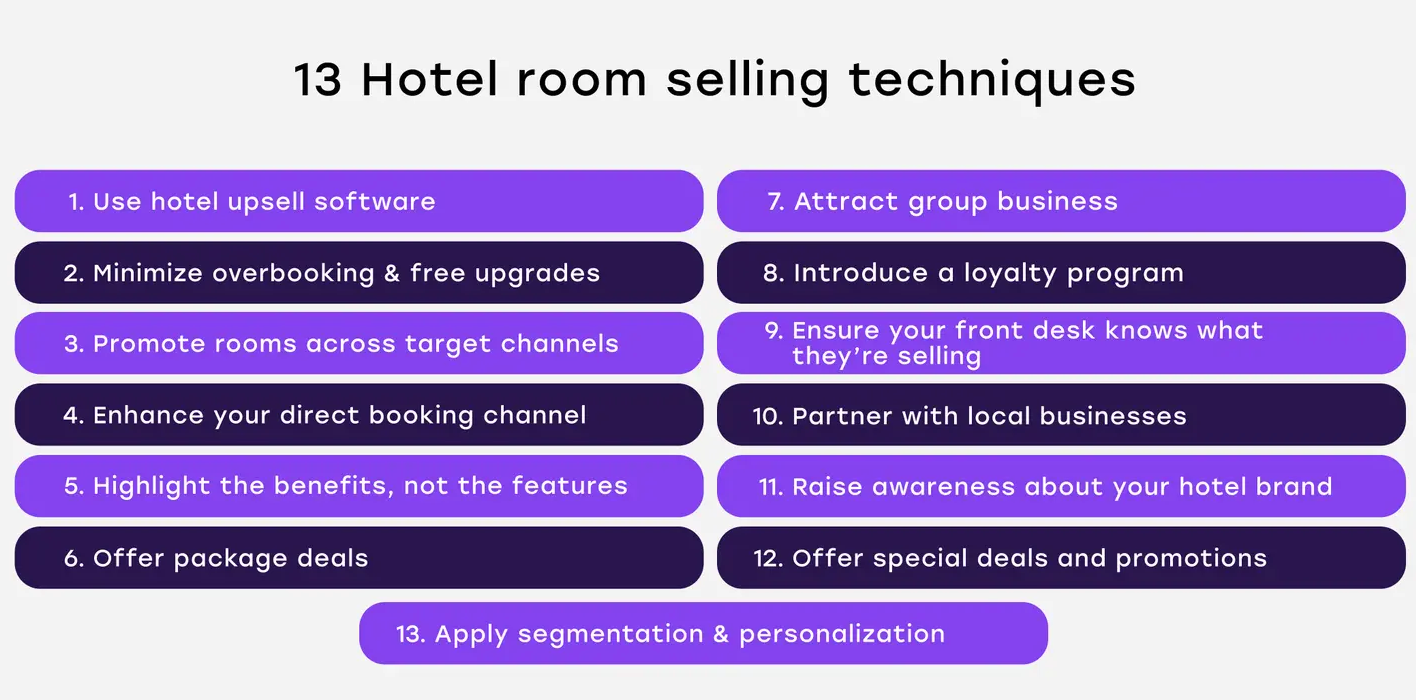
Why hotels must shift to AIO (AI Optimization) to stay visible in 2025 and beyond
The article emphasizes the necessity for hotels to transition from traditional Search Engine Optimization (SEO) to AI Optimization (AIO) to remain visible in the evolving digital landscape of 2025. With the rise of AI-driven search tools like Google's Search Generative Experience (SGE) and ChatGPT, travelers increasingly rely on conversational AI for travel planning. AIO involves optimizing content to be AI-friendly, ensuring that hotel information is accessible and relevant in AI-generated search results. This shift requires hotels to focus on structured data, conversational content, and real-time information updates to meet the expectations of AI-first travelers.

Hotel loyalty programs continue to prove their value: Key findings from 675 million members
CBRE's analysis of hotel loyalty programs reveals their continued effectiveness in driving occupancy and revenue growth. In 2024, membership surged by 14.5% to over 675 million, surpassing room growth and increasing members per available room by 7.4%. Loyalty members contributed to 52.8% of occupied rooms, despite a slight decline in room nights per member, indicating a shift towards more casual or credit card-based members. While loyalty program fees rose by 4.4%, they remained a modest 1.6% of total revenue, underscoring their cost-efficiency. The study suggests that hotels can further capitalize on these programs by encouraging point redemptions during off-peak periods and offering ancillary incentives like dining credits and exclusive experiences.
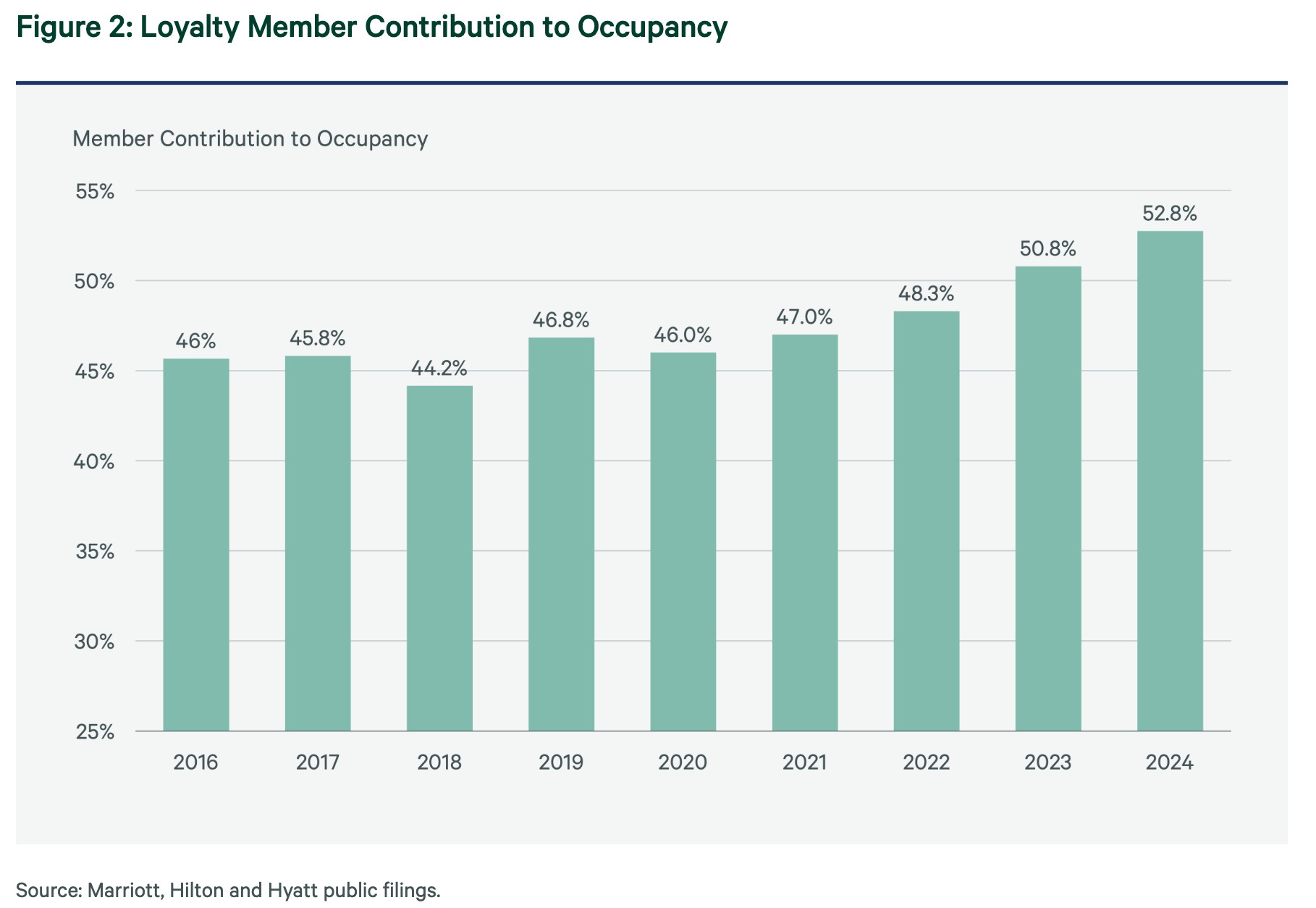
Follow on LinkedIn




